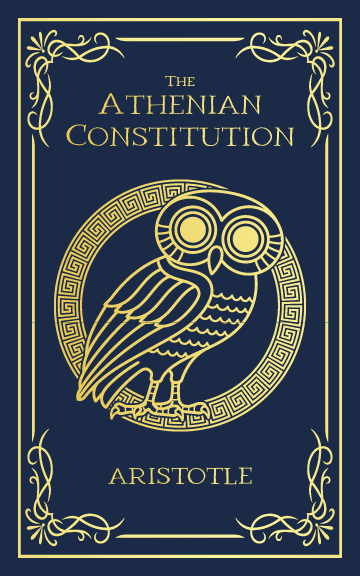The Athenian Constitution
The Athenian Constitution
Aristotle was the most famous of Plato’s students, but he eventually discarded the teachings of Platonism to focus on empiricism. His thoughts on physical science had a profound effect on medieval scholars, and in turn, helped shape the Renaissance. His teaching on metaphysics continues to bear an influence on Christian theology, and he was well respected amongst medieval Muslim intellectuals. His thoughts on ethics and logic continue to be taught and debated by academics in universities across the world, and he is regarded as one of the greatest minds in history. Yet his thoughts on the constitutional history of Athens and the Athenian government are less well known.
In this book, Aristotle brings the full force of his razor-sharp mind to bear on democracy, its history, how it works, and its intrinsic importance. Often overlooked, the book serves as an invaluable and intriguing introduction to ancient political thought. Translated from the original Greek text by Frederic George Kenyon, the prose loses none of its intended punch. Aristotle leaves no stone unturned or no pathway untrodden as he goes in search of the very essence of democracy. First-time readers can now discover for themselves just how much the Athenian Constitution influenced modern Western political thought and why Ancient Greece is often referred to as the “cradle of western civilization.”



